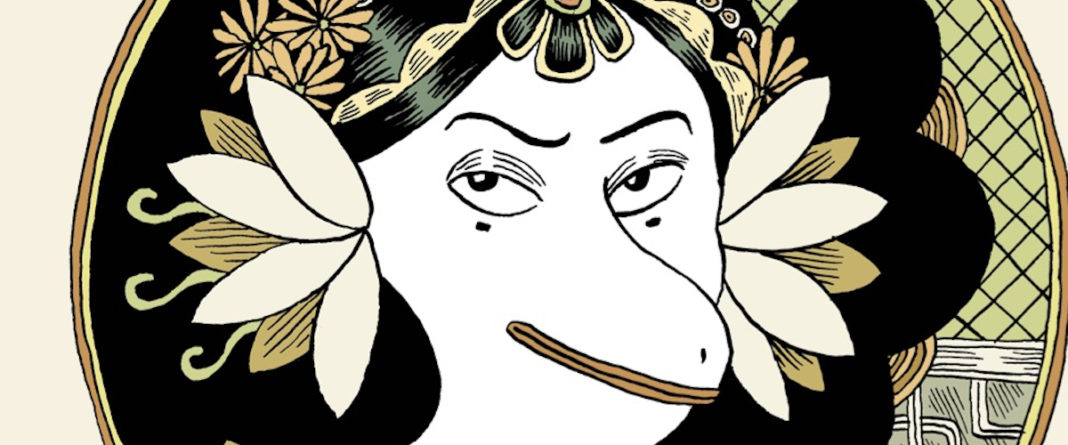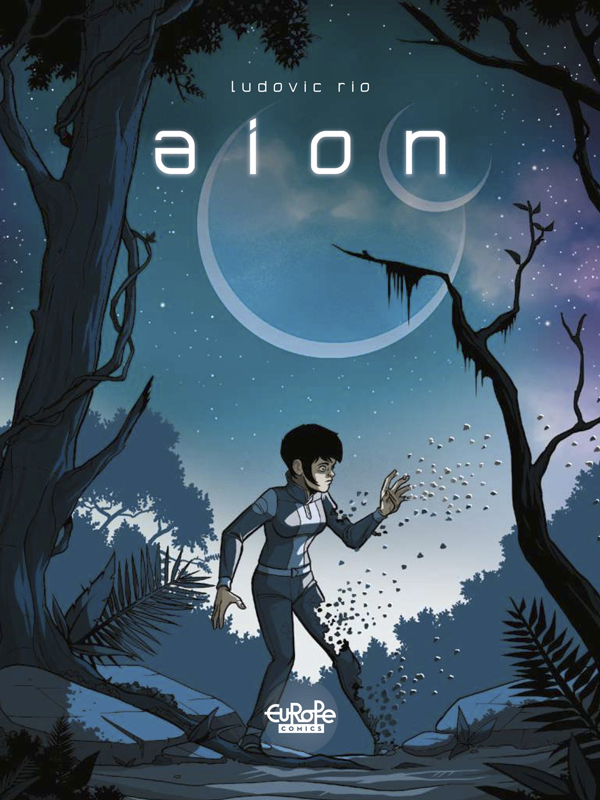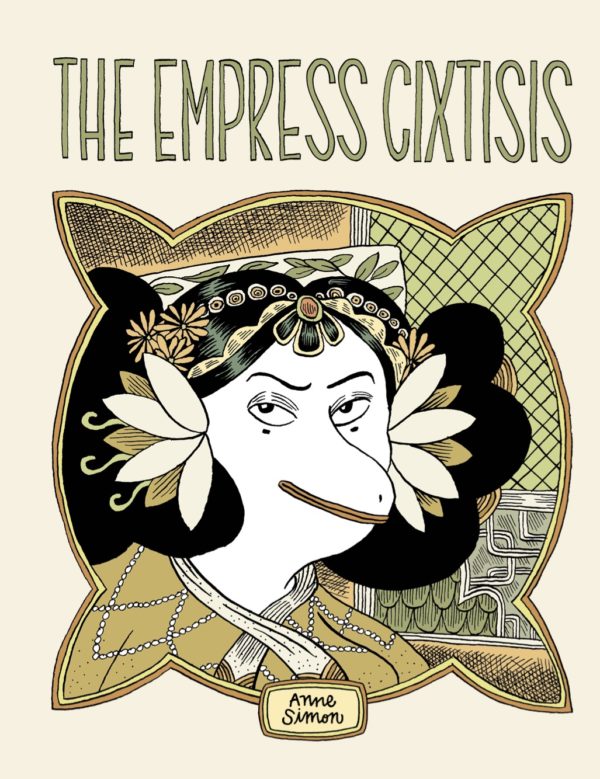Aion
By Ludovic Rio
Europe Comics
This to-the-point science fiction story reads a little like a comics version of Duncan Jones’ Moon, with some temporal issues added. In the debut graphic novel by French creator Ludovic Rio, we are introduced to Captain Lexi Neel as she wakes up from her cryogenic slumber on a long journey back to Earth in order to attend to a distress signal that her ship has received.
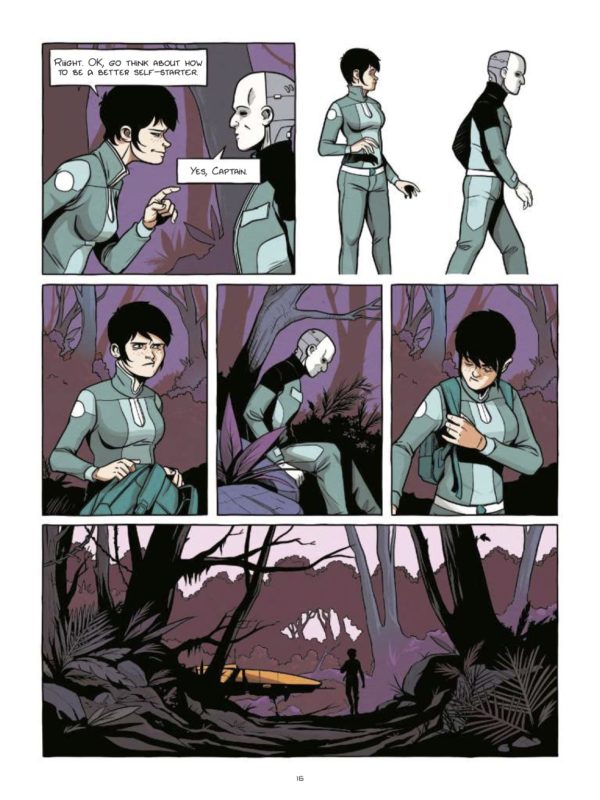
Aion, it seems, has “peculiarities” that make it the perfect place for certain research, and Lexi’s investigations take her through the abandoned research post there to try and figure out why her ship received a distress signal and who that skeleton in the chair belongs to.
To give anything away is to give too much away, so suffice it to say that Lexi encounters one of the moon’s “peculiarities” and finds a temporal shift may give her the opportunity to return to Earth at the exact moment she left, and make up for the regret-filled years she’s spent on her space mission instead of being with her daughter.
Aion creeps along in its suspense with an old style pacing that is alway welcome with science fiction. It gives time for some of the issues it explores to actually be ironed out —among them the idea that knowledge is worth any cost, notions of what constitutes real consciousness in artificial intelligence. Rio’s art crafts an atmosphere of foreboding, in which Lexi wanders through remote, sometimes hostile backdrops, but also empty ones that succeed in bringing a chill to the experience by offering little more than their depiction and placing her in them.
The Empress Cixtisis
By Anne Simon
Fantagraphics
The Empress Cixtisis, a sequel to last year’s The Song of Aglaia, opens during Queen Aglaia’s peaceful reign of Suffragette City, in the country of Barbarann, which has been on a recent decline due to the disappearance of the men who live there. No men, no reproduction. No reproduction, no future.
As the story opens, Empress Cixtisis of the neighboring Chincinia is headed to meet with Aglaia, who wants a word with her about that very issue, as Aglaia knows that Cixtisis is behind the missing men The two women do not get along — Aglaia’s kind and casual nature offends Cixtisis lofty entitlement — and a confrontational dinner offers a couple revelations that complicate the talks.
Trapped in the center of the political drama is Aglaia’s cook Damien, previously dismissed for losing her crown, but now returned to the palace and pretty much the only male in 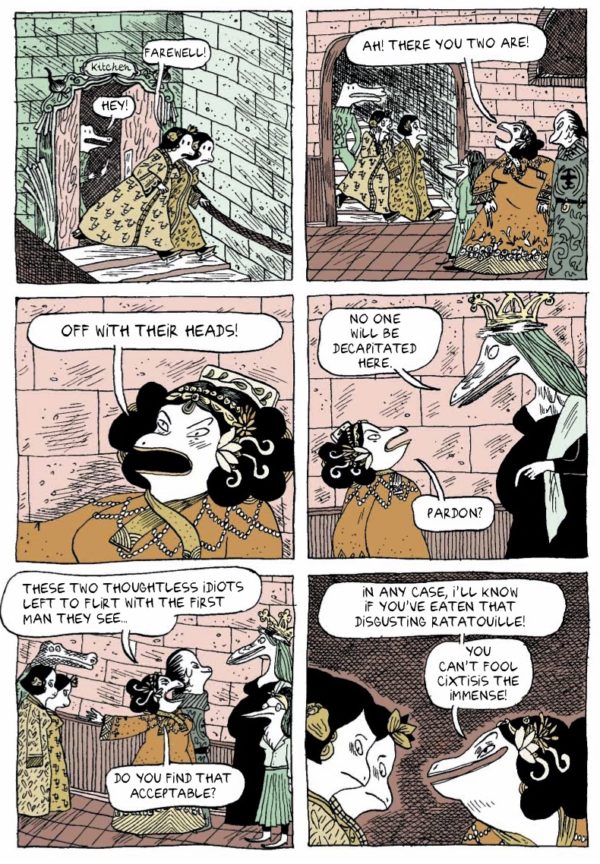
If the previous book had a heady quality to it that used the aspects of its fantasy to examine the nature of political power in regard to gender and the ways in which seizing it can compromise the players involved, The Empress Cixtisis unfolds in simpler terms that focus less on those issues and more on the what-you-see-is-what-you-get court intrigue.
The character Cixtisis is supposedly based on the Empress Dowager of China Cixi, a fascinating woman viewed as both a despot and a reformer and who stands as a complicated ruler for a complicated country. You’re not going to find much of that in the characterization of Cixtisis, who is more of a one-dimensional fairy tale tyrant designed to contrast Aglaia’s disposition.
That’s a little disappointing, but ultimately fine, since The Empress Cixtisis works mostly as a perfectly enjoyable fantasy story with slight but not crucial subtexts. It excels at that — Simon’s cartooning is playful, with very original character designs, and her she has as a gift for character humor amidst the absurd and bizarre. The Empress Cixtisis is fun and creative and certainly worth your time, but it lacks the sophistication of the original, which a character based on Cixi would have been more more interestingly realized in.


